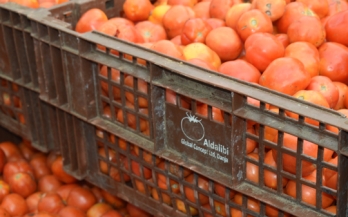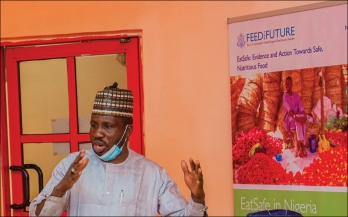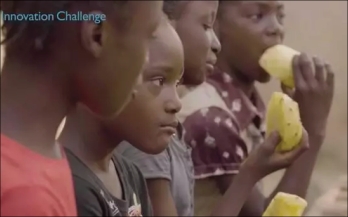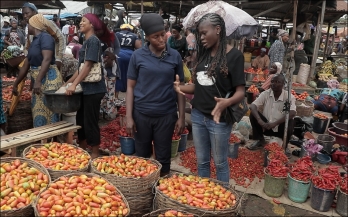Malnutrition (hidden hunger) which means deficiencies of vitamins and minerals poses severe health and economic threat to Nigeria. It remains one of the leading causes of mortality among children under five and pregnant and nursing mothers in Nigeria.
As part of critical knowledge generation to inform policy development and stakeholder alignment on the prospects for rice fortification in Nigeria, a detailed landscape analysis of Nigeria's rice sector was undertaken along with a technical feasibility assessment of the opportunities and viability of rice fortification in Nigeria.
The PLAN Nigeria project focused on tomato value chains and employed two models in its theory of change i.e. improving coordination among value chain actors through an Alliance, and building capacity and encouraging SMEs to adopt improved practices and technologies through Business-to-Business (B2B) mentorship.
GAIN and partners, together with the Kaduna State Government in Nigeria, developed and implemented the 'Eggs Make Kids' campaign, launched on World Egg Day in October 2019.
To increase consumer demand for improved food safety, EatSafe is testing four interventions that seek to change consumers and vendor behaviors in two traditional food markets in Northwestern Nigeria.
The 2022 EatSafe Innovation Challenge received 700 applications from students, researchers, and entrepreneurs with ideas how to adapt food system innovations to traditional food markets contexts and along value chains to solve food safety issues in Nigeria and Ethiopia.
EatSafe conducted focus group discussions and individual interviews with vendors and consumers to understand knowledge, attitudes, and practices related to food safety behaviors in Kebbi State, Nigeria.
Nigeria suffers from extreme levels of micronutrient deficiencies affecting the health, death rates, brain and physical development of the majority of Nigerians.To assess this existing evidence, and the remaining data gaps, this State of the Nation review provides a multi-sectoral analysis of all the available data from the last 10 years, from 2012 to 2021.
To understand knowledge, attitudes, and practices related to food safety behaviors, EatSafe surveyed nearly 1,000 consumers and vendors in Kebbi State, Nigeria, as well as structured observations of vendor behaviors.
Nigeria’s delivery of a pathway for food systems transformation in advance of the first United Nations Food Systems Summit in 2021 is evidence of strong political commitment to transformative food systems action. It is increasingly recognised that food system issues must be tackled in a coherent way to capitalise on synergies existing across domains like nutrition, agriculture, health, and the environment.










